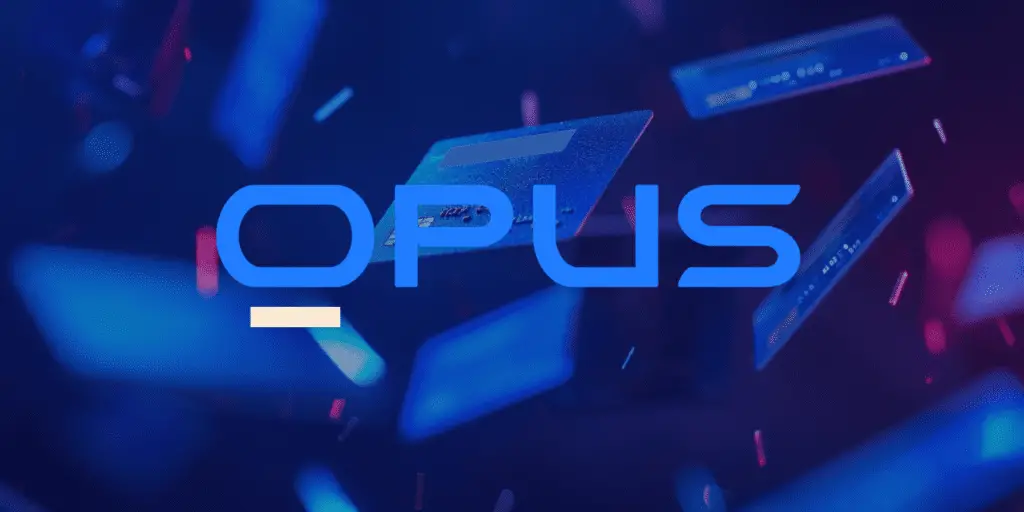Opus Technologies, a company with a history of being a technology enabler for the banking and payments sector, is leading the charge in democratizing AI adoption among banks, credit unions, payment service providers, merchants, and fintechs.
With the launch of innovative platforms and solutions, Opus is not just participating in the industry’s evolution; it’s actively facilitating it, making advanced technologies accessible and actionable for financial institutions of all sizes.
In an insightful interview with FinTech Futures, Praveen TM, the CEO of Opus Technologies, shared his vision for the future of the financial industry and how his company is enabling a wave of innovation through open collaboration platforms.
His perspective provides a glimpse into the direction in which banking and payments are heading, driven by AI and other emerging technologies.
This article delves into the financial services industry’s transformative journey, spotlighted through the lens of Opus Technologies’ initiatives and Praveen TM’s foresight.
From the evolution of financial services to the exciting future trends forecasted by industry leaders and how Opus is pioneering the AI transformation in banking and payments, we will explore the myriad ways technology sets the new standard in finance.
The Evolution of Financial Services
The financial services industry has consistently been at the forefront of embracing technological advancements, undergoing transformative shifts that have revolutionized how financial transactions are conducted and how services are delivered to customers.
This journey of evolution, marked by the transition from traditional banking practices to digital-first strategies and now towards an AI-first approach, highlights the industry’s commitment to innovation and customer-centricity.
The initial phase of this evolution was characterized by the digitization of financial services, where banks and other institutions began offering online banking, digital payment methods, and mobile banking solutions.
This shift improved the efficiency of financial transactions and enhanced the convenience and accessibility of banking services for consumers worldwide.
The advent of digital transformation paved the way for a more interconnected and streamlined banking ecosystem, setting a new standard for service delivery in the industry.
As the digital transformation deepened, financial institutions increasingly turned to cloud computing to improve operational efficiency and agility.

Cloud-first strategies allowed banks to reduce reliance on physical infrastructure, leading to cost savings and increased scalability.
Today, the financial services industry is moving towards an AI-first approach, where artificial intelligence is becoming the backbone of banking operations and customer service.
AI’s potential to analyze vast amounts of data in real-time and generate insights enables financial institutions to offer personalized services, improve risk management, and enhance operational efficiency.
From chatbots that provide instant customer support to AI-driven fraud detection systems, the integration of artificial intelligence is transforming the financial landscape, making services more secure, efficient, and tailored to individual customer preferences.
Fintech companies have played a crucial role in accelerating this evolution, challenging traditional banks to elevate service delivery and embrace technological innovation.
By demonstrating the possibilities of technology in enhancing customer experience and operational efficiency, fintechs have spurred the industry to adopt more agile and innovative approaches to banking.
As we look towards the future, technological advancements will continue to drive the evolution of financial services.
The industry’s commitment to adopting the latest technologies, from AI to blockchain and beyond, promises to further reshape the world of banking and payments, ensuring that financial services remain responsive, secure, and aligned with the evolving needs and expectations of consumers around the globe.
Opus Technologies
Opus Technologies has carved a niche as a catalyst for change in the banking and payments industry, championing the cause of digital and AI transformation.
With a legacy spanning over two decades, Opus has been at the forefront of technology innovation, aiding financial institutions in navigating the waves of digital evolution.
This role has become increasingly pivotal as the industry shifts towards an AI-first approach, necessitating a blend of strategic vision and technological prowess to harness the full potential of artificial intelligence in financial services.
Opus Technologies’ journey began with enabling banks and payment service providers to transition from traditional to digital platforms. By offering solutions that facilitated the move to cards, ATMs, and digital transactions, Opus helped demystify technology adoption for many institutions.
This phase was crucial in setting the groundwork for a broader, more comprehensive approach to digital transformation, focusing not just on individual services but the entire banking ecosystem.
The transition to leveraging artificial intelligence in banking and payments presented a new set of challenges for financial institutions.
These challenges ranged from the scarcity of technical talent capable of developing and implementing AI solutions to the significant investments required for AI infrastructure.
There was a noticeable gap in understanding AI’s potential return on investment (ROI), making some institutions hesitant to commit fully to AI adoption.
Recognizing these hurdles, Opus Technologies embarked on a mission to facilitate the seamless integration of AI into the banking and payments industry.
The company’s deep insights into financial institutions’ operational and strategic needs positioned it uniquely to address these challenges head-on.
To bridge the gap between AI’s potential and its practical adoption, Opus introduced FinGeniusAI Solutions.
This initiative is designed as an open innovation platform, encouraging collaboration among clients, partners, and technology experts.

The platform aims to co-create with stakeholders, identify unique challenges faced by clients, and develop actionable roadmaps towards successful AI implementation.
FinGeniusAI Solutions stands out by focusing on building proof of concepts with limited budgets, demonstrating the tangible benefits and potential ROI of AI applications in banking.
This approach has significantly lowered the barriers to AI adoption, allowing banks and financial institutions of all sizes to explore AI technologies without the daunting initial investments typically associated with such endeavours.
Opus Technologies believes in the power of collaboration to drive innovation. By bringing together various stakeholders, including clients, technology partners, and industry experts, Opus has created a fertile ground for innovation.
This collaborative approach ensures that the solutions developed are not only technologically advanced but also deeply aligned with the financial services industry’s specific needs and challenges.
Through initiatives like FinGeniusAI Solutions and its broader suite of digital transformation services, Opus Technologies plays a critical role in shaping the future of banking and payments.
By facilitating the adoption of AI and other digital technologies, Opus is helping financial institutions stay competitive in a rapidly evolving landscape. This ensures they can offer their customers the secure, efficient, and personalized services that have become the hallmark of modern banking.
AI Use Cases in Focus at Opus
With its FinGeniusAI Solutions, Opus Technologies is pushing the envelope in applying artificial intelligence within the banking and financial services industry.
Since its launch, the platform has actively engaged with various financial institutions to develop and test AI-driven solutions that cater to specific needs and challenges. Here’s a closer look at some of the innovative AI use cases Opus is focusing on:
One of the standout projects involves the development of intelligent payment routing systems. This AI-driven solution aims to optimize the path payments take, ensuring transactions are completed efficiently, cost-effectively, and in a timely manner.
Analyzing numerous real-time variables, including transaction fees, processing times, and exchange rates, allows this system to dynamically choose the best route for each payment, significantly improving operational efficiency and customer satisfaction.
Another groundbreaking application is in the area of payment enrichment and auto-repair. Traditionally, payment processing can be hindered by incomplete or incorrect transaction data, requiring manual intervention to resolve issues.
Opus is developing AI models that automatically identify and correct errors in payment data, enriching transactions with the necessary information to ensure they are processed smoothly. This speeds up transaction processing and reduces the operational burden on financial institutions.
Using AI to forecast ATM cash requirements represents a significant leap forward in operational efficiency for banks.
By accurately predicting cash demand at each ATM, financial institutions can optimize their cash distribution networks, reducing the costs associated with cash transportation and handling and minimizing instances of ATMs running out of cash.
This AI application accurately forecasts demand by considering various factors, including historical transaction data, seasonal trends, and even local events.
Opus is also bringing the power of generative AI to document analysis and contextual search within banking information libraries.
This involves developing AI models that can understand and interpret complex financial documents, extracting relevant information and insights.
Such capabilities can significantly enhance the efficiency of processes like compliance checks, customer due diligence, and product development by providing quick and accurate access to necessary information.
The AI use cases Opus Technologies is working on indicate the broader potential for artificial intelligence to revolutionize banking and financial services.
Opus demonstrates how AI can address specific industry challenges, from operational efficiency to customer service and compliance, by focusing on practical, impactful applications.
Through its open innovation platform, Opus is not developing these solutions alone but is collaborating with clients, technology partners, and other stakeholders.
This approach ensures that the AI solutions are finely tuned to the real-world needs of financial institutions, making the leap from theoretical potential to practical application.
Beyond AI
While artificial intelligence stands out as a pivotal force shaping the future of banking and payments, other significant technological trends simultaneously influence the financial industry.
These emerging developments promise to further redefine the landscape of financial services, enhancing how banks operate, and customers interact with their financial institutions.
With its finger on the pulse of innovation, Opus Technologies is contributing to adopting and integrating these trends alongside its AI endeavours.
Open banking represents a transformative shift towards more open, interconnected financial services ecosystems.
Open banking facilitates the creation of new, customer-centric financial products and services by leveraging APIs to securely share financial data between banks and third-party providers.
This openness fosters innovation, giving customers more control over their financial data and enabling personalized banking experiences.
Embedded finance, closely related to open banking, integrates financial services within non-financial digital platforms and ecosystems.
This trend is expanding the reach of financial services, allowing consumers to access banking, payment, and investment services seamlessly as they interact with various online platforms, from e-commerce sites to social media.
The demand for instant, frictionless payment experiences has led to the rapid development and adoption of real-time payment systems.

In the United States, the FedNow Service spearheads this movement, providing a round-the-clock infrastructure for banks and credit unions to offer immediate payment services to their customers.
This capability is crucial for enhancing liquidity management for businesses and providing consumers with instant access to funds, thus improving the overall efficiency and convenience of the payment system.
Another critical trend is the global migration to the ISO 20022 financial messaging standard. This transition will revolutionize how financial information is exchanged between institutions worldwide.
By adopting a common language and format for payment data, ISO 20022 facilitates richer, more structured data exchanges, enhancing the efficiency of cross-border transactions and improving anti-fraud and compliance checks. The standard supports the evolution towards faster, more transparent, and seamless international payments.
Opus Technologies is not just a spectator in the evolution of these trends but an active participant facilitating their adoption through innovative platforms like Paysemble.
Paysemble is designed to ease the integration of these emerging trends into existing banking infrastructures, offering a suite of accelerators that simplify the adoption, migration, and implementation processes.
By focusing on the convergence of AI with other technological advancements such as open banking, embedded finance, real-time payments, and ISO 20022 migration, Opus is helping financial institutions navigate the complexities of modern banking.
The company’s efforts in promoting these trends, alongside AI, are pivotal in ensuring that banks and payment service providers remain at the cutting edge of the financial services industry, ready to meet their customers’ evolving needs and expectations.
As these trends continue to unfold, Opus Technologies’ proactive approach to facilitating digital and AI transformation while also embracing other technological advancements underscores its commitment to shaping a more efficient, inclusive, and innovative financial future.
Paysemble
Technological advancements like AI, real-time payments, and open banking are setting new benchmarks for efficiency and customer experience, and Opus Technologies is introducing Paysemble.
This platform emerges as a critical enabler, facilitating the seamless adoption of these burgeoning technologies within financial institutions’ existing infrastructures.
Paysemble represents a significant leap towards simplifying the integration process, ensuring that banks and payment service providers can swiftly adapt to and implement the latest innovations without the common hurdles associated with such transitions.
Paysemble is built on a foundation that integrates three essential layers into its architecture, making it a robust platform for various financial applications:
At the heart of Paysemble is its ability to seamlessly translate between different message formats. This capability is crucial for banks and financial institutions adopting the ISO 20022 standard or integrating with other systems that may use different messaging standards.
By ensuring compatibility across diverse financial messaging formats, Paysemble facilitates smoother and faster data exchange. The platform’s workflow orchestrator enables the automation and optimization of business processes.
This component is critical to managing the complex workflows associated with real-time payments, ensuring transactions are processed efficiently and reliably.
It allows financial institutions to design, execute, and monitor automated workflows that can adapt to the nuances of different payment types and regulatory requirements.
The interface module of Paysemble provides the necessary tools for creating user-friendly interfaces, making it easier for banks to offer new services to their customers.
This includes integrating financial services into non-financial platforms for embedded finance applications enhancing the customer experience by providing banking services in a more accessible and integrated manner.
Paysemble is not just a technological solution; it’s a strategic platform designed to accelerate the adoption of new technologies in the banking and payment sectors.
Its suite of accelerators simplifies the complex processes of technology adoption, migration, and integration, addressing common challenges such as compliance, security, and interoperability.

By offering a simplified set of workflows, data models, and user interfaces, Paysemble ensures rapid development and deployment of new services, enabling financial institutions to stay competitive and responsive to market demands.
The platform’s flexibility and comprehensive feature set suit various applications. Paysemble facilitates the integration of real-time payment systems like the FedNow Service, enabling banks to offer instant payment solutions to their customers.
The platform supports the smooth processing of retail payments and cross-border transactions, ensuring compliance and efficiency.
For institutions preparing for the ISO 20022 migration, Paysemble provides the tools and capabilities needed to make the transition seamless and efficient.
Built on cloud and microservices architecture, Paysemble offers the scalability, flexibility, and resilience that modern financial institutions require. Its design allows for easy plug-and-play integration into existing IT ecosystems, minimizing disruption and facilitating faster solution delivery.
Final Thoughts
The trajectory of the banking and payments industry is unmistakably veering towards a future where digital and AI technologies not only enhance operational efficiency but also redefine customer experiences.
In this rapidly evolving landscape, Opus Technologies stands out as a beacon of innovation, guiding financial institutions through the complexities of digital transformation.
With its comprehensive suite of solutions, including the pioneering FinGeniusAI and Paysemble platforms, Opus democratises access to advanced technologies, enabling banks, payment service providers, and fintechs to navigate the transition with agility and confidence.
Praveen TM, CEO of Opus Technologies, shared insights that underscore the company’s vision of a financial industry where innovation is not just an option but a necessity for survival.

Through its relentless pursuit of innovation, Opus Technologies is not only anticipating the industry’s future needs but actively shaping them.
By addressing critical challenges such as barriers to AI adoption and integrating emerging technologies like real-time payments and open banking, Opus ensures that financial institutions are not just prepared for the future but are pivotal in creating it.
The AI use cases in focus at Opus, ranging from intelligent payment routing to AI-driven document analysis, highlight the practical application of these technologies in solving industry-specific challenges.
Meanwhile, the emergence of trends such as embedded finance and the migration towards the ISO 20022 standard further illustrate the dynamic nature of the financial services landscape.
Opus Technologies’ proactive approach to embracing these trends and its AI initiatives positions it as a key player in facilitating digital and AI transformation and reshaping banking and payments.
The journey of digital transformation in the banking and payments industry is marked by continuous innovation and the strategic adoption of emerging technologies.
Through its visionary leadership, innovative solutions, and collaborative platforms, Opus Technologies is at the forefront of this journey, empowering financial institutions to meet the evolving demands of the digital age.
As the industry marches towards an increasingly digital and AI-integrated future, Opus Technologies’ role in facilitating this transformation underscores its commitment.


